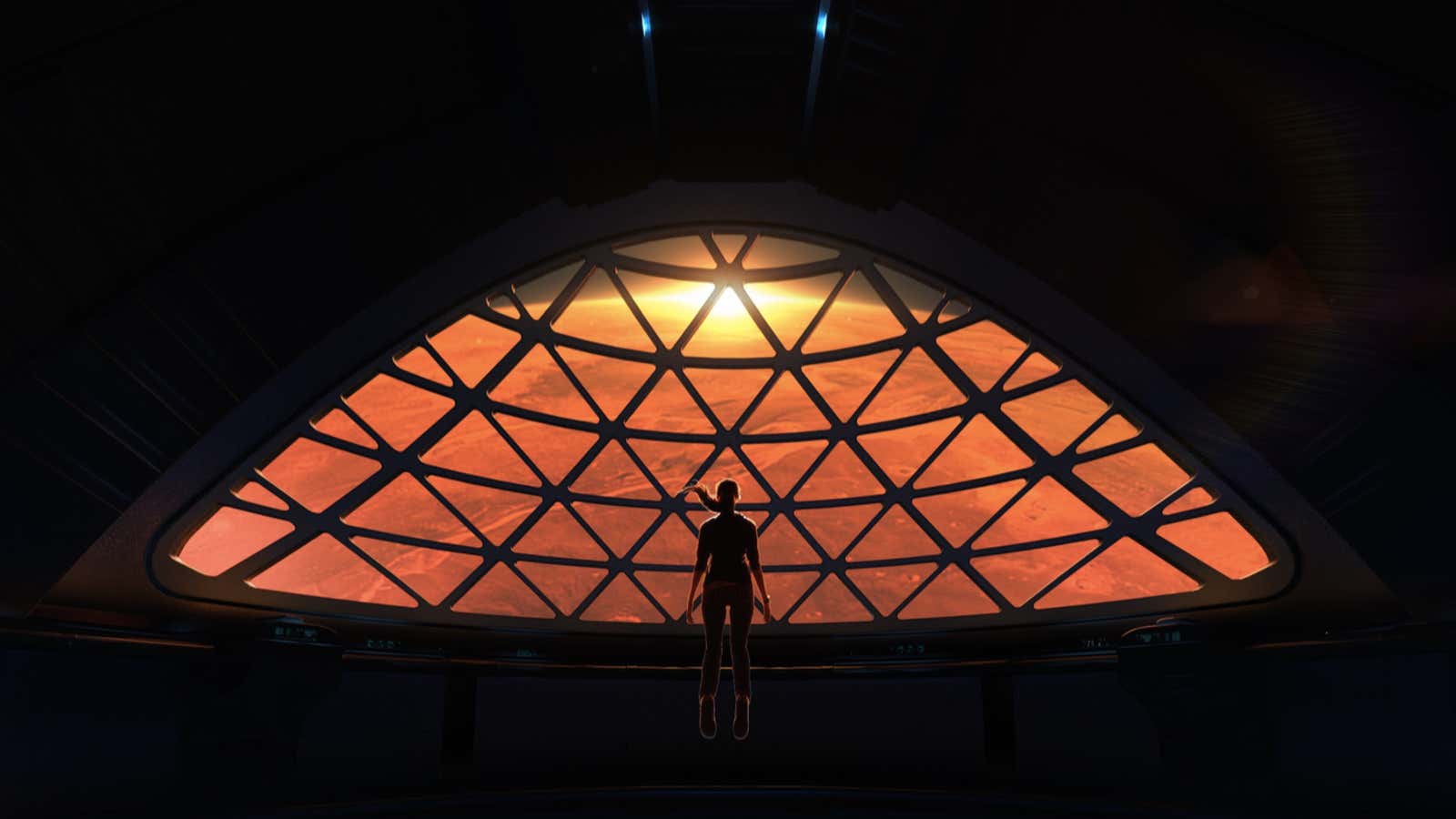Elon Musk, the founder of Tesla and SpaceX, is doing great things on Earth. All the while, however, he is dreaming about living on Mars. Yesterday (Sept. 27), he laid out his most detailed plan to colonize the red planet. When Mars travel becomes commonplace, he thinks a ticket will cost as little as $200,000.
We still don’t know if humans can survive the six-month trip through space while being bombarded by cosmic radiation. We don’t know if the the rocket SpaceX needs for this will actually get built. We don’t know where Musk will get the money.
And, yet, even if he overcomes the limitations of science, technology, and financing, the thing that threatens to scupper his plans is ethics, and maybe space law.
Any colonization of Mars will involve placing humans close to a source of water on Mars. But the 1967 Outer Space treaty, adopted by the United Nations, forbids any activity that will cause “harmful contamination” of celestial bodies with life from Earth.
As Quartz reported previously:
Terrestrial life has been shown to be very resilient. Microbes are found in almost every nook and cranny of this planet, even the driest and hottest parts. Earth’s microbes survived nearly two years stuck on the outside of the International Space Station. All probes that land on Mars are cleaned to be sterilized of life but no one yet knows how strict you need to be to ensure that bacterial life cannot form viable, self-sustaining colonies on Mars.
All space missions to an alien world are bound by planetary protection protocols. On Mars, these protocols determine which areas a mission can and cannot land, and how far it can explore after landing. And the more we learn about Mars, as a 2014 report makes it clear, the more special regions are being found where we can’t send missions.
Areas that are warm or wet enough to support Martian life are out of bounds. Polar ice caps, caves, and regions with volcanic activity are such special regions. Even regions where ice is found as deep as five meters below the surface are on the list.
And Musk’s plans go further than landing probes. Sending humans, who are a little more than giant bags of trillions of microbes, means almost certainly contaminating the red planet with terrestrial life. There’s also a chance our microbes could kill any delicate Martian life that may exist and we haven’t discovered yet.
In October 2015, the world’s greatest Mars experts assembled to find the best possible landing site for humans on the red planet. They couldn’t agree on one location, after much heated debate. They cited a lack of data to ensure the 1967 treaty can be respected.
By sending humans to Mars, Musk risks not just breaking space law but also creating an ethical legacy that will haunt humans forever. Steve Clifford, a researcher at the Lunar and Planetary Institute, told Scientific American:
“In medicine, the prime edict is to do no harm. That’s the attitude we should take in exploring Mars. Mars is the first place we’re going to really try to detect indigenous alien life, probably the first place beyond Earth we’re going to try to live, and it will set a precedent we will take with us out into the rest of the solar system, maybe even beyond. If life does exist somewhere on Mars, it has managed to survive there for billions of years. What is our curiosity compared to that? Does it give us the right to trespass without extreme caution? I’m not sure that possibly causing the demise of the first alien life we ever detect is the legacy we want to create.”
Musk’s dream to colonize Mars is not about science, though. It is an insurance policy. “History suggests there will be some doomsday event,” he said. “The alternative is to become a space-going civilization and a multi-planet species.” When your belief is that you’re saving humanity from annihilation, you may not care too much about a few alien microbes.
But Musk also admits that he can’t achieve the colossal task alone. “Ultimately, this is going to be a huge public-private partnership,” he said. Even if Musk doesn’t have ethical qualms, as a publicly funded body, NASA most certainly will.
